Revealed: Who are the 'People with the Shirts' at the Western Wall?
Every Tisha B'av, they arrive at the Western Wall, donning shirts featuring two photos — one of an elderly woman, the other of a young girl. They peel watermelons, cut cucumbers, and prepare 'Lachas Soup' with a secret recipe. Eric Navon went to meet them and returned both excited and surprised.
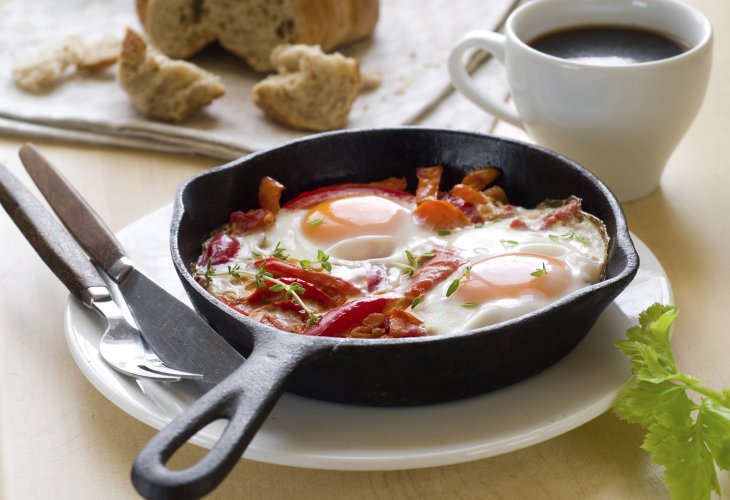
Just last week, we concluded Tisha B'av, but the impressions left from the refreshment area of the Makies family, at the conclusion of the fast at the Western Wall, remain with me far beyond Tisha B'av.
What wasn't there?!
I'm returning there.
Tisha B'av, it's 6:00 in the evening, peak time by all accounts. I'm ascending through the Lion's Gate toward the Western Wall, dragging along in my Crocs. While walking, I check again in my tefillin bag to make sure I didn't forget at home or on the bus the rugelach I placed in the bag to break the fast. It's a precious and rare item at this time, I thought to myself.
I passed the security gate, the device beeped, but no one really cared. I continued dragging my feet. As I walked, I noticed a cute boy walking innocently, wearing a shirt with a picture and some text. I didn't think to stop him to ask the meaning of the picture because if I stopped everyone wearing a shirt with a caption, I wouldn't only miss the Mincha prayer at the Wall, but at least Arvit as well.
The Smile of Tisha B'av
I continued my pace fitting my Tisha B'av spirit. After about three meters, I saw another shirt like the boy's, this time on a little girl. I kept walking. Shirt, another shirt, another shirt, I got closer and closer, and as I moved closer, the number of people wearing the shirts with the picture started to multiply. I approached more and looked for someone not moving, so I could read the text. There was one such person. The shirt read "In memory of our grandmother Rachel Chaya Ruth Makies z"l".
I decided to ask. Tisha B'av, people are generally more tolerant, despite the risk of time.

Hello, person with the shirt, may I ask what these shirts you’re all wearing mean?
"I'm not just a person, I'm Dudu Makies. You ask about the shirt, instead of explaining it here, come with me a few more meters, then you can ask questions."
We walked together a few meters, then I noticed in the corner of the plaza a fenced area, within it dozens of men, women, children, grandparents, all preparing for a communal event, and all wearing the same shirt.

I didn't quite understand, can you explain to me? I asked Dudu.
"I can definitely explain. Our story here at the Wall is a tradition that began 35 years ago when I was six. The woman you see in the picture on the shirts, that's our 'Grandma Rachel'. She started this tradition when my uncle, Uncle Meir, her son, was ill. She felt she needed to do a good deed for his recovery and pray for him. Her idea was to merit the blessings of Torah scholars, directing the blessings for Uncle Meir's recovery."
Royal Refreshments
You spoke of tradition. What do you mean? I asked Dudu again.
Dudu took me by the hand and led me into the area. I'm not sure if it was right of him to do this to me an hour before breaking the fast, but I wouldn't have forgiven him if he hadn't.
"Look at what we have here", Dudu told me, as I trailed behind him on a tour. On one side, dozens of trays piled with cakes and cookies of all flavors and colors, ready to be served. On the tables nearby, I noticed dozens of watermelons being sliced at that moment; below the tables, along their length, were hidden cardboard boxes filled with cold drinks, next to them dozens of havdalah sets, meant for the worshippers before breaking the fast. I continued touring the tables and noticed another stand, but a bit unusual.

What's this stand for? I asked Dudu.
"This is the stand for the soup called 'Lachas Soup', soup made of semolina and vegetables, but it's not just any soup, it has a tradition from grandma z"l".
And there's a story about it: "In the year 2004, during grandma’s last Tisha B'av, she was hospitalized at Rambam Hospital in Haifa and couldn't make it to the Wall. We didn't give up on distributing at the end of the fast; we knew hundreds and thousands of worshippers awaited us eagerly. Grandma asked us not to forgo her custom, even when she couldn't come herself, to distribute among other things the 'Lachas Soup' she used to make. She asked her daughter Pnina to prepare the soup and bring it to the hospital so she could see if there was a match between the one she made and the one Pnina made. After tasting the soup, she approved it. About two weeks later, on the 24th of Av, grandma passed away, but for us, she left a legacy to continue the sacred custom of breaking the Tisha B'av fast at the Western Wall. So every year, the extended family comes up to continue grandma's tradition and now in memory of her."
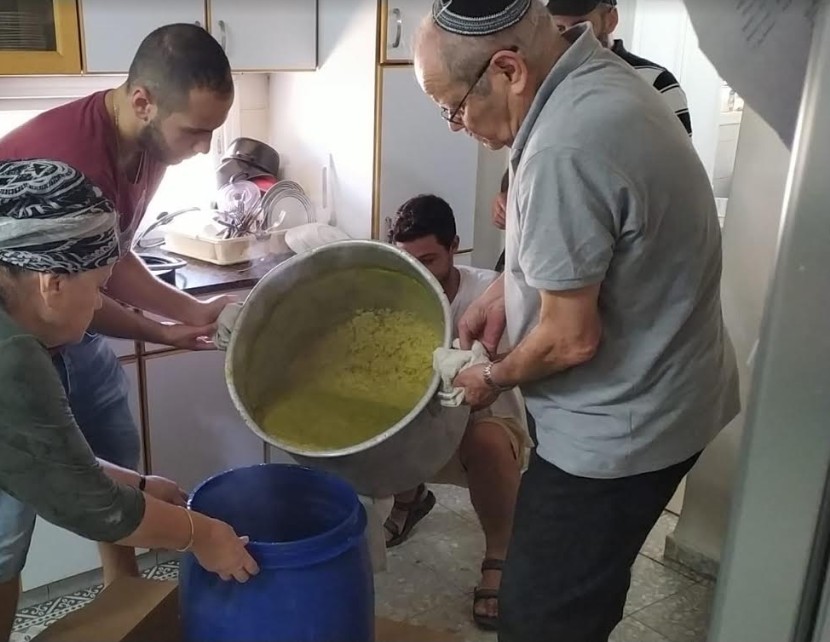
The Hot Soup
And the soup?
"Since grandma approved the soup, Aunt Pnina’s soup has become Grandma Rachel’s soup."
I'm curious - what would grandma distribute?
"What didn’t she distribute? Grandma sat on a step that used to be in front of the Wall plaza peeling cucumbers and eggs, slicing watermelons, handing out whatever she could. Those who were still hungry received the 'Lachas Soup' brought from her home, hot and steaming. Grandma had methods to keep the heat, and trust me, people licked their fingers, and perhaps regretted not having more than ten fingers.

Did grandma live in Jerusalem?
"No, grandma lived in Tiberias. She made the journey from Tiberias to Jerusalem so her act of kindness would assist in Uncle Meir's recovery when he was ill. She wanted to hear the blessing a Jew would say; it was her full recompense for all her hard work. After grandpa passed away, and then Uncle Meir, she did all her giving and the merit-winning acts in their memory."
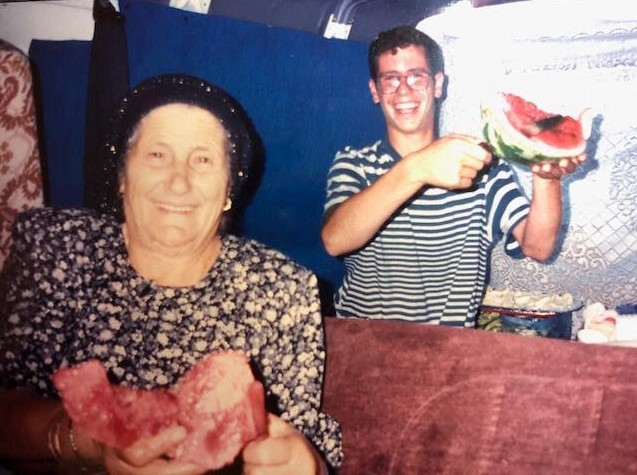
You haven't told me about grandpa.
"My grandpa, Rabbi David Elmakies z"l, was a truly God-fearing Jew. He managed the Chemed School in Tiberias and was among the greatest liturgical poets of Morocco, the right hand of Rabbi David Buzaglo z"l. Any true Moroccan smiles when they hear his name, 'Rabbi David Buzaglo', the cantor of Casablanca, and beyond."
And grandma, where did she buy all the food? In Jerusalem?
"No, she brought it all from Tiberias, not just the food, but also her children. My father Yechiel and his brothers Yaakov, Shimon, Mordechai, Pnina, Rebecca, and Miriam. The trip from Tiberias to Jerusalem via the Jordan Valley road used to be dangerous, but grandma never gave up. She insisted her entire family come along and accompany the trip with firearms for any unforeseen trouble. I, too, joined every year since I can remember myself as a child."
The Different Shirt
As I continued standing in the area, I noticed a child wearing a shirt similar to everyone else's, but just similar, not quite the same. I got closer to the shirt and saw two pictures on it — on the right Grandma Rachel, on the left a young girl.
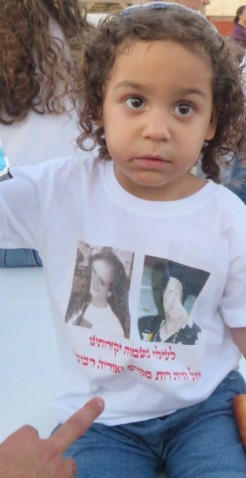
Dudu, may I ask gently, what's the story behind this different shirt?
"Yes, you can ask. That's my cousin, Oria Ravivo z"l, the daughter of Aunt Pnina. She was an active volunteer here at the Wall every year but, unfortunately, she tragically passed away five years ago at the age of only 19. We feel she's still here with us, helping and volunteering as she always did."
And tell me, Dudu, what's with the Chevra Kadisha vehicle I see nearby?
"You're seeing correctly, the fast doesn't confuse you. Grandma z"l volunteered for the Chevra Kadisha for no pay, with full dedication. She did things most women couldn't do. After Grandma passed away, Chevra Kadisha decided to participate in the family's memorial contributions by building a purification room in her memory, located in Poriyah, called 'Tahar Rachel'.
"Additionally, every year Chevra Kadisha helps transport all the food quantities we distribute in Grandma Rachel’s memory. They understand that this is the greatest acknowledgment she could receive from them for all she did for them and for the Jewish people over the years."
I told Dudu I'm going to pray now and we'll meet at the hour of truth, when the fast ends.
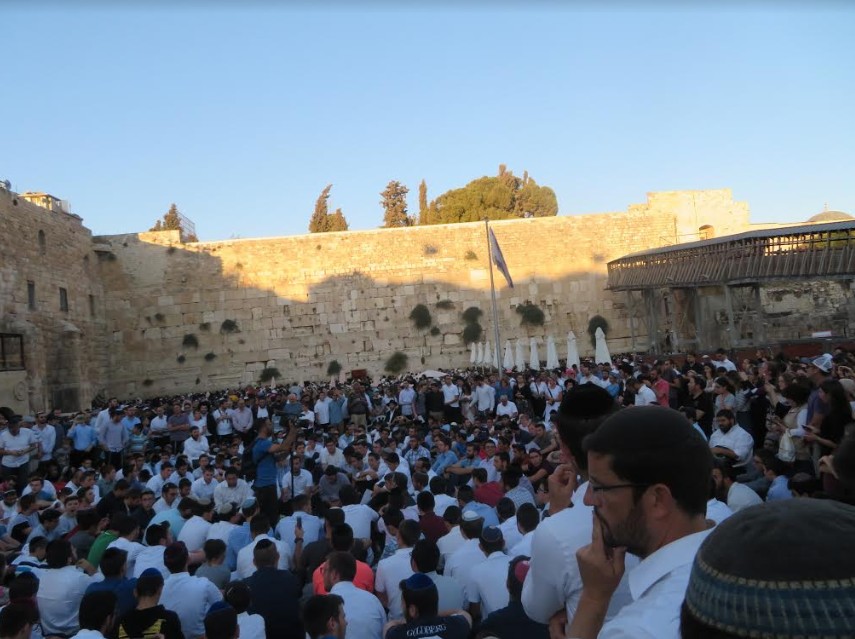
I returned at 7:56 PM, what I witnessed was a profound act of Kiddush Hashem. In front of the Wall stones, which just finished drying their tears over the Temple's destruction due to baseless hatred, were hundreds and thousands of people gathering, opposing them were 120 volunteers of the Makies family, each knowing exactly their position, their platter, their soup bowl, distributing all the spoils of Egypt, in Jerusalem. I was very surprised and moved, here, in front of the remains of the Temple, destroyed due to baseless hatred, a family spanning generations gives a warm expression of giving, partnership, and love for no reason.

Dudu promised me that next year they will come again, and perhaps next year more than two buses will leave from Tiberias, making space for me too. I laughed and told him, "Dudu, next year, no one fasts." Amen.
I went over to Dudu to say goodbye (and maybe on the way to get some watermelon slices) but found him distributing glasses of arak to the Israelites. You understood correctly, it really was arak, so no Jew could say he was missing something, because truly nothing was lacking. And what was most prevalent was heart, filled with heart, to the glory of the people of Israel. To the glory of the city Tiberias, proving that love for no reason could be its motto.

